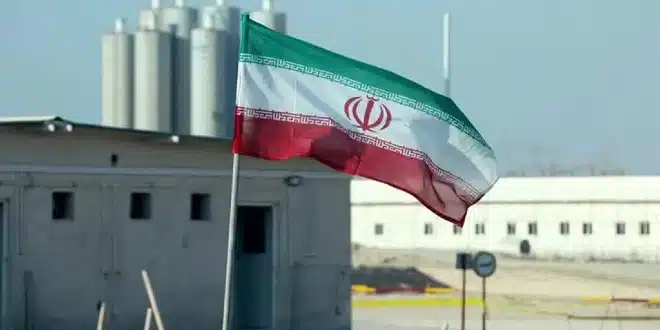Diplomatic efforts to salvage the Iran nuclear agreement intensified on Friday, as Iranian officials met with representatives from European powers in Istanbul. The high-stakes discussions come against the backdrop of renewed pressure from the United States and potential reimposition of sanctions.
Iranian Deputy Foreign Minister Kazem Gharibabadi stated that the discussions with the E3 — Britain, France, and Germany — focused on the latest developments surrounding the indirect nuclear negotiations with Washington, as well as the status of sanctions relief. He noted that future talks may be held with the same parties, should further dialogue be deemed necessary.
These meetings follow an earlier warning from Iranian Foreign Minister Abbas Araghchi, who cautioned that any attempt by the European powers to reinstate United Nations sanctions could trigger irreversible consequences. The sanctions had initially been lifted as part of the 2015 Joint Comprehensive Plan of Action (JCPOA), a deal that exchanged curbs on Iran’s nuclear program for economic relief.
U.S. Presses for Quick Resolution While Iran Denies Proposal
During a visit to Abu Dhabi, U.S. President Donald Trump stated that his administration had submitted a new proposal to Iran aimed at reviving a nuclear deal. He emphasized that Tehran must act swiftly to reach an agreement or face serious consequences. The remarks reflect Washington’s strategy of combining diplomacy with economic and political pressure.
However, Iranian officials quickly responded, asserting that no formal proposal had been received through any channels. Araghchi stated that Iran remained open to dialogue if its rights — particularly regarding peaceful uranium enrichment — were respected. He reaffirmed that Tehran would not relinquish its right to enrichment, characterizing it as a non-negotiable aspect of its nuclear policy.
The indirect negotiations, reportedly facilitated by Oman, mark the highest level of engagement between the two adversaries since the U.S. withdrew from the 2015 agreement in 2018 and reimposed sweeping sanctions on Tehran’s oil and banking sectors.
Snapback Sanctions and Diplomatic Calculations
The European parties to the nuclear deal are currently weighing whether to activate the agreement’s “snapback” mechanism, which would restore UN sanctions in response to Iran’s breaches of the original terms. This provision, however, is set to expire in October, prompting urgency in the discussions.
Iran’s foreign minister warned that such a step would exacerbate nuclear proliferation risks and primarily endanger European interests. Despite this, he also signaled that Tehran is willing to re-engage constructively with European nations to restore mutual confidence.
Following the Istanbul meeting, Gharibabadi described the discussions as productive and reaffirmed Iran’s commitment to diplomatic efforts. UK Foreign Office political director Christian Turner echoed that sentiment, noting the parties’ shared commitment to ongoing dialogue and indicating plans for additional meetings.
In parallel, U.S. Secretary of State Marco Rubio reportedly convened with national security advisers from France, Germany, and the UK to align strategies on both the Iranian nuclear issue and the ongoing war in Ukraine.
Path to Resolution Remains Unclear
The separate negotiation tracks — one with the European powers and another with the United States — reflect a complex and layered diplomatic landscape. China, another signatory to the JCPOA, has also voiced support for a political solution, emphasizing the need for peaceful resolution through sustained diplomacy.
President Trump, during his trip to Qatar, indicated that a potential agreement with Iran was within reach. He reaffirmed that the U.S. is committed to preventing Iran from achieving nuclear weapons capability but remains open to a peaceful resolution. However, he warned that time is limited and reiterated his administration’s readiness to impose further economic penalties, including a complete halt to Iranian oil exports, should negotiations stall.
Iran currently enriches uranium to 60 percent purity — far above the JCPOA limit of 3.67 percent but still below the weapons-grade threshold of 90 percent. While Tehran insists that its nuclear ambitions are civilian in nature, it has expressed conditional willingness to temporarily limit the extent of its enrichment activities.
Mohammad Eslami, head of Iran’s atomic energy agency, reaffirmed that the country’s enrichment program is monitored by the International Atomic Energy Agency (IAEA). He reiterated that Iran does not intend to develop nuclear weapons and rejected any suggestion of dismantling its enrichment infrastructure.
As diplomatic efforts continue, the road ahead remains uncertain. The success or failure of these negotiations could have significant implications not only for regional stability but for global non-proliferation efforts as well.


